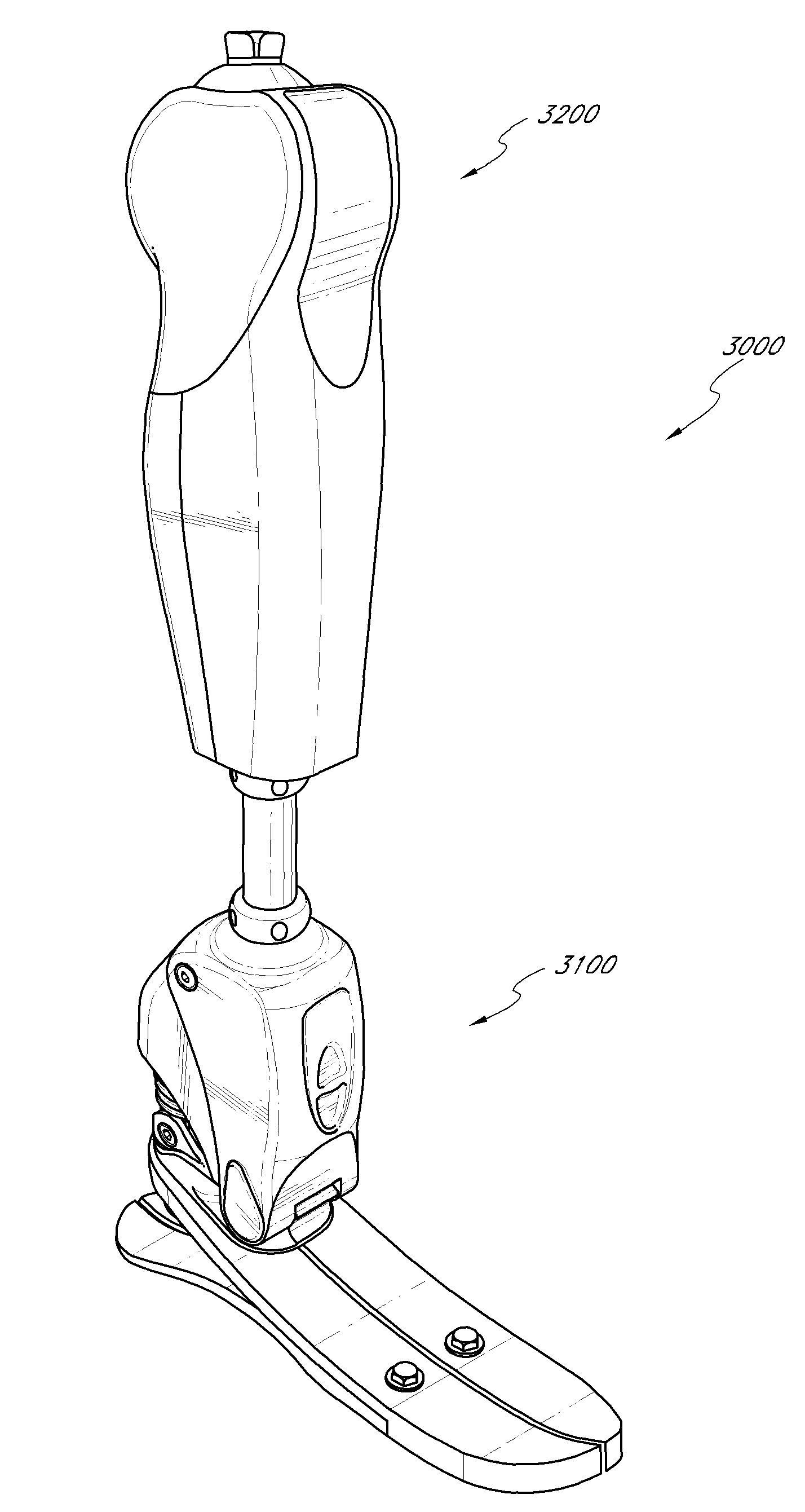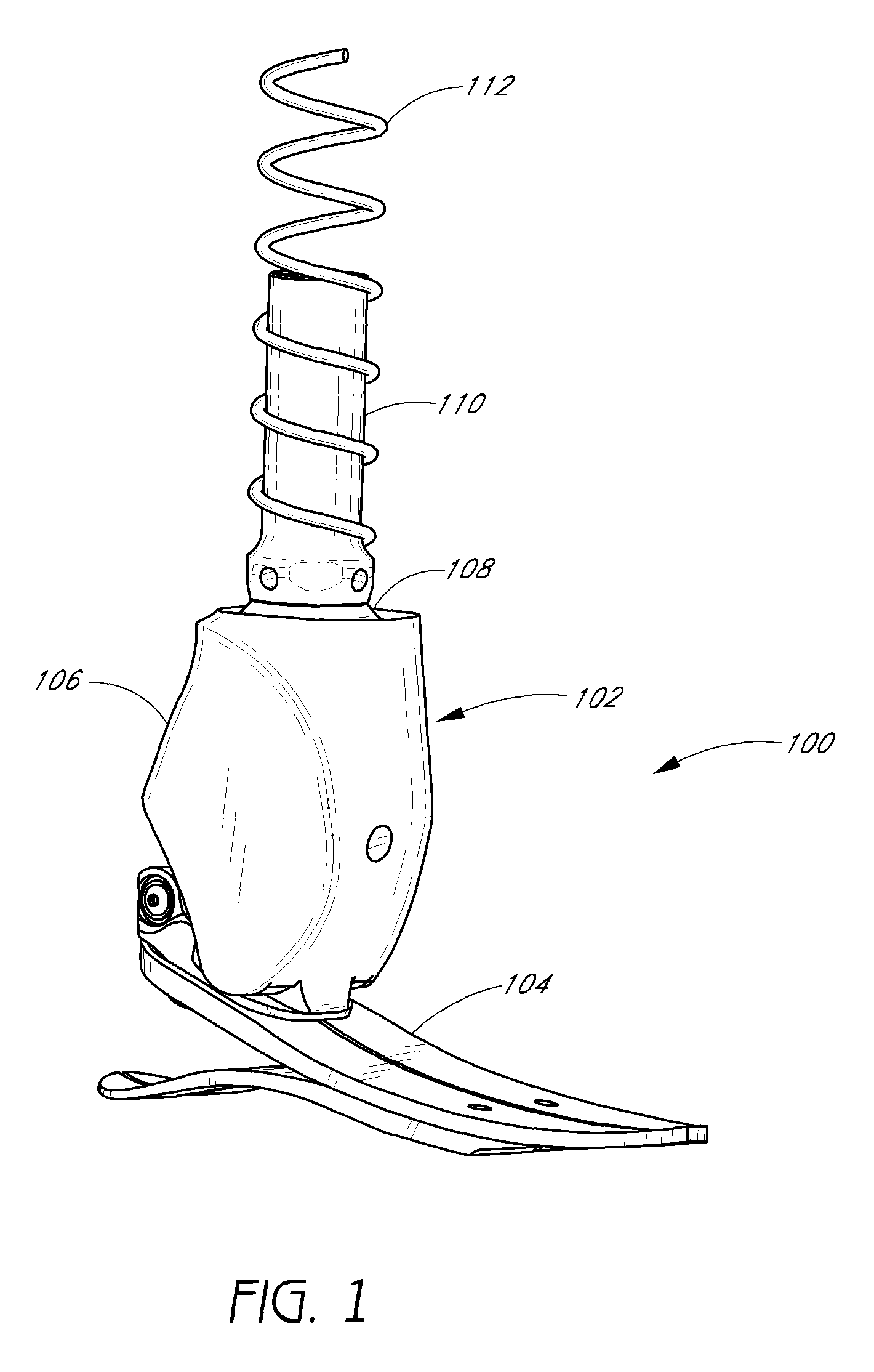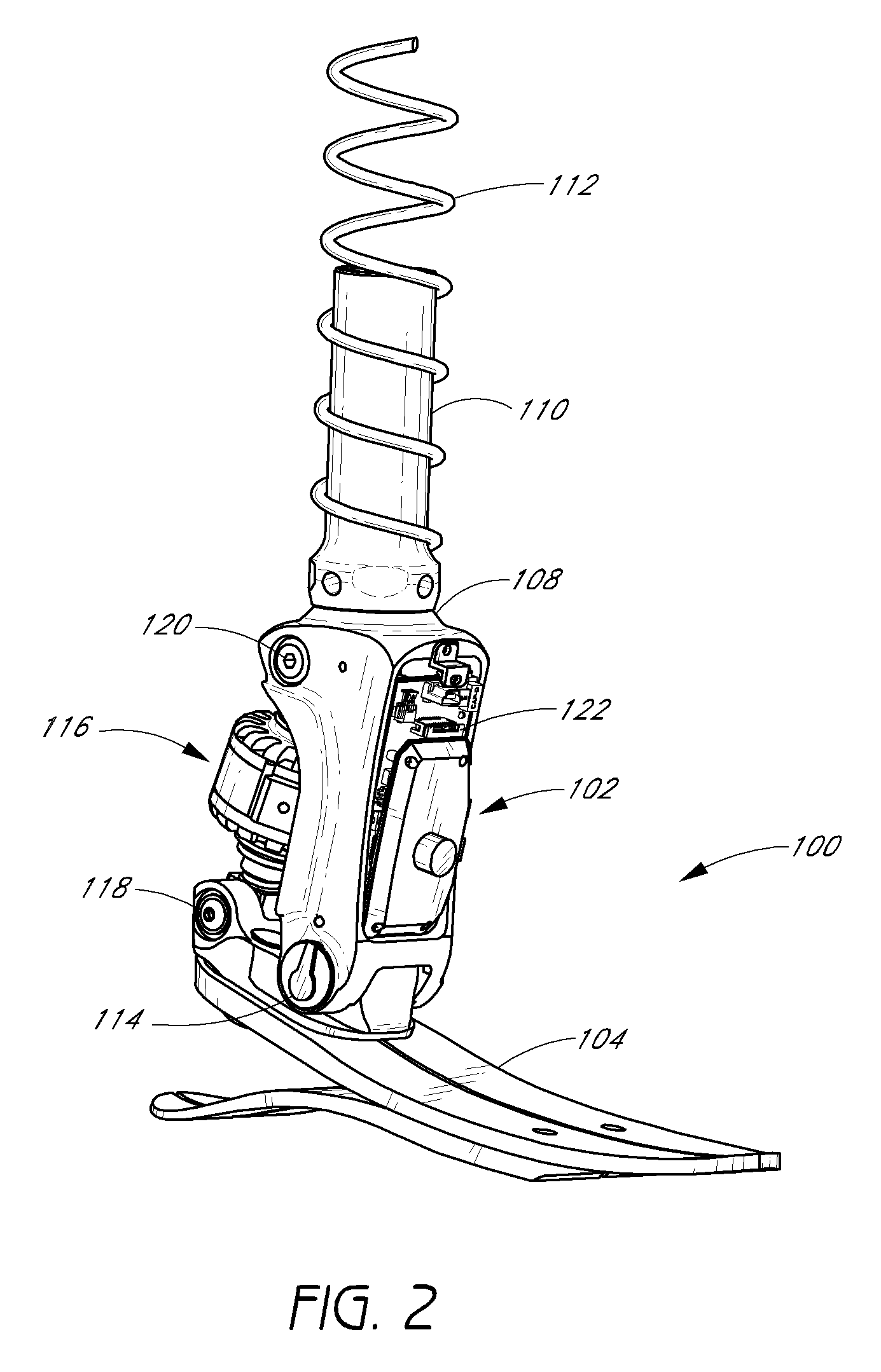Transfemoral prosthetic systems and methods for operating the same
a transfemoral and prosthetic technology, applied in the field of prosthetic and orthotic limbs, can solve the problems of high energy expenditure on the part of the disabled person or amputee, inability to take into account the dynamic conditions of the working environment, and inability to adjust the gait, etc., to achieve more natural and comfortable movement, convenient and intuitive configuration, and the effect of adding
- Summary
- Abstract
- Description
- Claims
- Application Information
AI Technical Summary
Benefits of technology
Problems solved by technology
Method used
Image
Examples
Embodiment Construction
[0009]Accordingly, one embodiment of the invention includes a prosthetic or orthotic system that is self-powered and that mimics the natural movement of a healthy limb, and in particular, the movement of a healthy ankle. Another embodiment of the invention includes a sensor system and a control system that manage the motion of the prosthetic or orthotic system so as to facilitate movement by the disabled person or amputee.
[0010]One embodiment of the invention includes a system associated with the movement of a limb. In one embodiment, the system comprises a foot unit; an attachment member having an upper end and a lower end, wherein the lower end is pivotably attached to a first location on the foot unit; and an actuator operatively coupled to the foot unit and to the attachment member, wherein the actuator is configured to actively adjust an angle between the attachment member and the foot unit. For example, the foot unit may be a prosthetic or orthotic device.
[0011]Another embodim...
PUM
 Login to View More
Login to View More Abstract
Description
Claims
Application Information
 Login to View More
Login to View More - R&D
- Intellectual Property
- Life Sciences
- Materials
- Tech Scout
- Unparalleled Data Quality
- Higher Quality Content
- 60% Fewer Hallucinations
Browse by: Latest US Patents, China's latest patents, Technical Efficacy Thesaurus, Application Domain, Technology Topic, Popular Technical Reports.
© 2025 PatSnap. All rights reserved.Legal|Privacy policy|Modern Slavery Act Transparency Statement|Sitemap|About US| Contact US: help@patsnap.com



